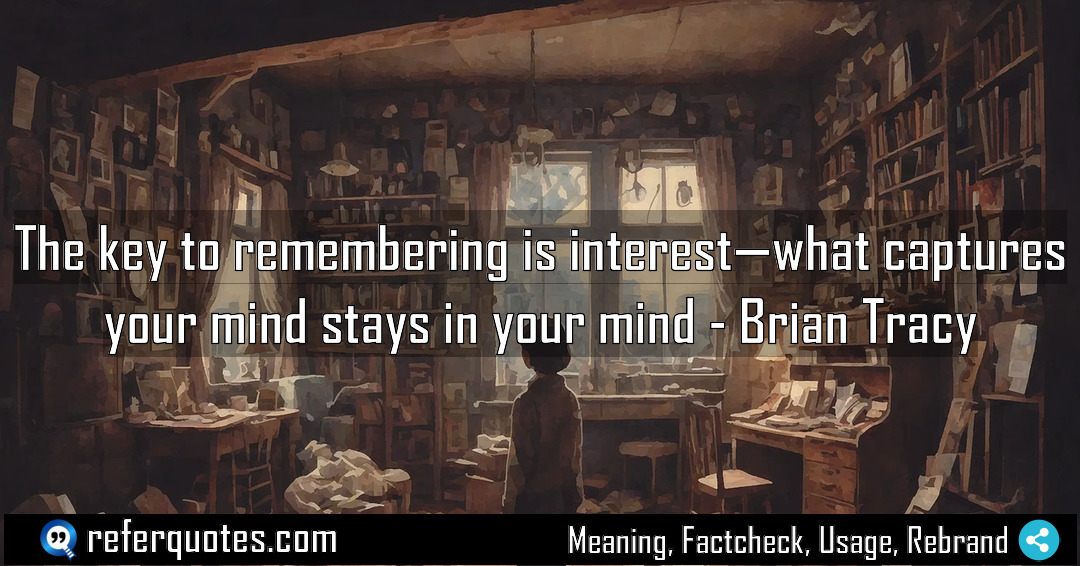You know, “The key to remembering is interest” isn’t just a nice line. It’s the absolute truth about how our brains are wired. When something genuinely captures your mind, it sticks without you even trying.
Share Image Quote:Table of Contents
Meaning
The core message is simple but profound: Your brain’s retention system is directly powered by your level of genuine curiosity and engagement.
Explanation
Let me break it down for you. Think about the last time you got lost in a topic you love. Maybe it was a hobby, a historical event you were fascinated by, or even a complex problem at work that you just had to solve. You didn’t have to force yourself to remember the details, right? They just… stuck. That’s the principle in action. Your brain prioritizes what it finds meaningful and emotionally resonant. It’s not about brute-force repetition; it’s about creating a hook of interest. When you’re interested, your mind is fully present, making connections, and that active engagement is what builds strong, lasting memories. It’s the difference between reading a page and forgetting it instantly and getting so into a story that you can recall scenes from it years later.
Quote Summary
| Context | Attributes |
|---|---|
| Original Language | English (3668) |
| Category | Education (260) |
| Topics | focus (155), interest (21), memory (50) |
| Literary Style | practical (126), psychological (31) |
| Emotion / Mood | curious (37), motivating (311) |
| Overall Quote Score | 82 (297) |
Origin & Factcheck
This quote comes straight from Brian Tracy and Colin Rose’s book, Accelerated Learning Techniques for Students. It was first published in the United States back in the mid-1990s. You sometimes see similar sentiments floating around, but this is the direct source—it’s not some ancient, misattributed proverb.
Attribution Summary
| Context | Attributes |
|---|---|
| Author | Brian Tracy (375) |
| Source Type | Book (4032) |
| Source/Book Name | Accelerated Learning Techniques for Students (59) |
| Origin Timeperiod | Contemporary (1615) |
| Original Language | English (3668) |
| Authenticity | Verified (4032) |
Author Bio
Brian Tracy, a prolific author gained global reputation because of his best seller book list such as Eat That Frog!, Goals!, and The Psychology of Selling, and created influential audio programs like The Psychology of Achievement. He is sought after guru for personal development and business performance. Brian Tracy International, coaches millions of professionals and corporates on sales, goal setting, leadership, and productivity.
Official Website |Facebook | X | Instagram | YouTube |
Where is this quotation located?
| Quotation | The key to remembering is interest—what captures your mind stays in your mind |
| Book Details | Publication Year/Date: 1999; ISBN: 978-1576751402; Last Edition: Berrett-Koehler Publishers, 1999; Number of Pages: 176 |
| Where is it? | Chapter 46: Interest and Memory, Page 226 / 176 |
